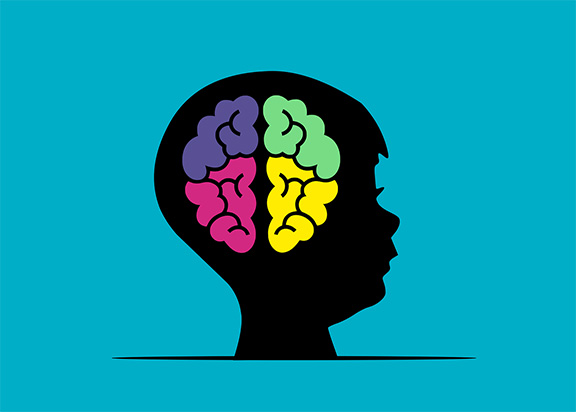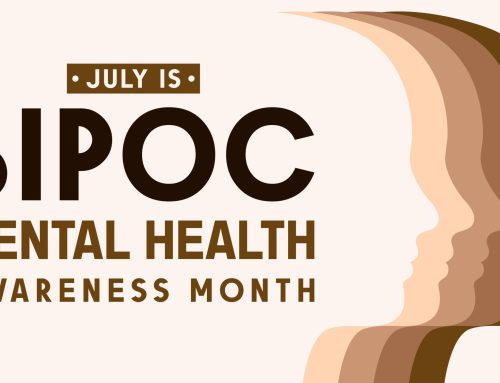November is Early Childhood Mental Health Awareness Month. The topic of children’s mental health is so important to talk about openly because as adults – especially parents – it’s our responsibility to make sure our world’s young people are healthy both physically and mentally.
Although mental health awareness overall has come a long way, we tend to leave infants and young children out of the conversation. But research shows that our littlest humans can face mental health challenges too – and the earlier we intervene, the better chance they have at growing into happy and thriving adults.
In today’s blog, we’ll cover the basics of early childhood mental health and give you some tips on how you can promote positive mental health in your own little ones.
What is early childhood mental health?
Early childhood mental health typically refers to the mental health of children between 0 to 8 years of age.
Many people are confused when they hear the term “early childhood mental health.” You might be off-put by the idea of young children being diagnosed with or treated for mental health disorders. After all, they’re only kids – right?
Sadly, many more young children live with mental health conditions than you might believe. Reports show that up to 17% of children are diagnosed with a mental illness before they’re 6. Even very young children show clear symptoms of anxiety disorders, depression, post-traumatic stress, and more.
But the topic of early childhood mental health doesn’t just affect children with mental health challenges. Mental health should be a priority for all children, especially during the important early childhood years when the brain is developing at a rapid pace. It’s not just about treating childhood mental illness – it’s about promoting strong mental health in all young children.
What do mental health problems look like in early childhood?
Young children can show signs of a wide range of mental health problems, from mood disorders to neurodivergence and sensory processing issues. Let’s look at some of the most common categories of early childhood mental health symptoms.
Attachment disorders and trauma
One of the most important things that happens during a baby’s life is the attachment they build with their caregiver(s). When there is neglect or abuse present in these relationships, then reactive attachment disorder and post-traumatic stress disorder (PTSD) can develop.
Abuse and neglect can severely impact a child’s developing brain, stunt their growth, and lead to serious physical and mental health consequences further down the line.
In infants and young children, attachment and trauma-related disorders might look like:
- Severe separation anxiety
- Not being soothed when reunited with their caregiver(s)
- Being indiscriminately attached to any adult and showing no preference for their caregiver(s)
- Hypervigilance; being jumpy or easily startled
- Avoiding the caregiver(s)
- Themes of trauma in play
Feeding disorders
Feeding disorders Sometimes, difficulty with food and feeding is a physical health problem – but often, it’s related to the child’s mental health. Even so, leaving a feeding disorder untreated can lead to stunted growth and poor development in the muscles involved in swallowing.
An early childhood feeding disorder can look like:
- A lack of interest in food or eating
- Difficulty achieving a relaxed state while eating (for example, the infant may be overly agitated)
- Refusal of food
- Using mealtimes to interact with caregivers rather than to eat
- Avoidance of specific foods based on texture, taste, smell, or other features
- No age-appropriate interaction with caregivers (like eye contact) during mealtimes
Hyperactivity and ADHD
Over 250,000 U.S. children aged 3 to 5 are diagnosed with attention-deficit hyperactivity disorder (ADHD). This condition leads children to have difficulty regulating their focus and energy levels.
Some signs of ADHD in young children include:
- More tantrums and emotional outbursts than other children their age
- Constantly being in motion, even more than other young children
- Reckless behavior to the point of endangering themselves
- Aggression toward self or others
- Difficulty falling asleep or little need for sleep
- Extreme impatience with others
- Loses interest in activities after only a few moments, even activities of their choosing
Anxiety and depression
As unbelievable as it may seem to some, even infants can be depressed and anxious. Reports show that around 1 in 40 children aged 0 to 5 have depression. Depression in parents makes it more likely that the infant or child will also have depression.
Signs of depression and anxiety in infants and toddlers include:
- Regressing to a previous stage of development
- Being withdrawn or staring into space
- Not engaging socially with caregiver(s)
- Excessive whining
- No interest in developmentally appropriate toys and activities
- Clinginess
- Breath-holding in toddlers
- Sleep issues
What causes mental health problems in early childhood?
As is the case with teens and adults, there’s not one singular cause of early childhood mental health problems.
Experts say that many different factors come together to make some children more at risk for developing mental health issues, including:
- Genetics: Some children are genetically predisposed to developing mental health problems, but this doesn’t mean that every child with these genes will have issues 100% of the time. It simply means that they may be at higher risk.
- Toxic stress: Being exposed to traumatic and stressful events (like abuse and neglect) over and over again can lead to toxic stress. Toxic stress can severely damage a baby’s brain development and make it much more likely for children to develop mental health problems, either right away or later on down the road.
- Biological factors: Some early childhood mental health concerns, like ADHD or certain feeding disorders, are a direct result of biological differences in the brain.
- Family history and parental stress: Family history also comes into play. Babies whose parents have postpartum depression are more likely to have depression themselves.
What can we do to support early childhood mental health?
If you’re a parent, you’re probably asking yourself: What can I do to protect my baby’s mental health? How can I decrease the odds that my child will have mental health problems, either now or as an adult?
Although there are many factors outside of our control, there are many things that you can do as a parent to help promote your child’s brain and emotional development and protect their mental health.
- Build a secure attachment: Foster a secure attachment with your child by responding to their needs promptly and consistently. This helps them feel safe and loved.
- Create a safe home environment: Ensure that the home environment is safe, free from hazards, and provides a sense of security for your child. Consistency and predictability are key for building safety.
- Emotional regulation: Help your child learn to regulate their emotions by modeling appropriate emotional responses and providing comfort when they’re upset.
- Engage in play: Play isn’t just fun – it’s essential for a child’s development. Engage in age-appropriate play that encourages creativity, exploration, and social interaction.
- Create healthy routines: Establish consistent daily routines for feeding, sleeping, and playtime. Predictability can help children feel secure.
- Nutrition and sleep: Ensure that your child has a balanced diet and gets enough restful sleep. Both nutrition and rest are essential for mental health.
- Positive discipline: Use positive discipline strategies that focus on teaching and guiding rather than punishment. This helps your child learn boundaries without feeling shame or guilt.
- Read and communicate: Reading to your child and engaging in “baby talk” and conversations from an early age can enhance their language development and cognitive skills.
- Lean on your support system: Caring for an infant or toddler can be exhausting, and it’s important for you to take care of your own mental health and take breaks when you need them. Seek support from friends, family, or mental health professionals.
- Protect your own mental health: Your well-being is closely linked to your child’s well-being. Be aware of your own mental health and get counseling when you need it.
- Educate yourself: Learn as much as you can about child development and parenting techniques. Attend parenting classes or workshops if possible.
- Seek professional help: If you have concerns about your child’s behavior or development, don’t hesitate to consult a pediatrician or a child psychologist. Early intervention is critical in preventing these problems from getting worse.
At MINES, we want to help you and your child thrive and stay mentally healthy. We provide comprehensive Parental Coaching and Lactation Consultation services to help you be the best parent you can be for your precious little one.
Through our Parental Coaching program, you receive 4 phone coaching sessions per year to address the most challenging aspects of parenthood. Our experienced coaches are here to support you through any concerns that you may have about this journey.
If you need mental health support for yourself, you also have access to 24/7 free and confidential counseling with a licensed mental health provider.
Let’s all work together to protect the mental health of our youngest and most precious citizens.
To Your Wellbeing,
The MINES Team












Leave A Comment